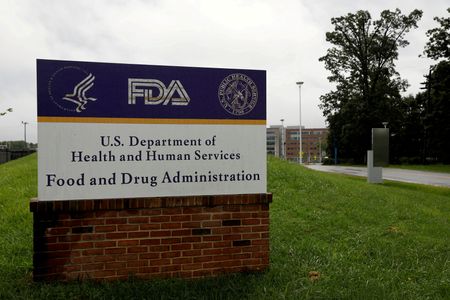(Reuters) -The U.S. Food and Drug Administration (FDA) on Monday tightened regulations for clinical laboratories with a new rule that gives it more oversight of diagnostic tests developed by them.
For years, the agency had allowed labs to use their in-house tests to diagnose a range of conditions, such as COVID-19 and other diseases, if they met certain standards, without a traditional authorization process.
However, the risks associated with most modern lab-developed tests (LDTs) are much greater now with the increase in the use of the tests, the agency said.
“LDTs are being used more widely than ever before – for use in newborn screening, to help predict a person’s risk of cancer, or aid in diagnosing heart disease and Alzheimer’s,” said FDA Commissioner Robert Califf.
The final rule announced today aims to provide crucial oversight of these tests to help ensure that important health care decisions are made based on test results that patients and healthcare providers can trust, Califf said.
Jefferies analysts estimated that roughly 5% of lab operator Labcorp’s diagnostic testing volumes are made up by LDTs, while 10% of rival Quest Diagnostics testing volumes are LDTs.
Under the new rules, these tests would be subjected to the same requirements as other diagnostic tests from medical device makers, including the FDA’s review of their applications and a requirement for reporting adverse events.
The FDA said it will phase out its earlier approach for LDTs over a period of four years.
It plans to continue regulating some LDTs through its older approach, including those that were first marketed prior to the final rule, and those which do not have an FDA-authorized counterpart available.
(Reporting by Mariam Sunny in Bengaluru; Editing by Shinjini Ganguli and Shailesh Kuber)
Brought to you by www.srnnews.com








